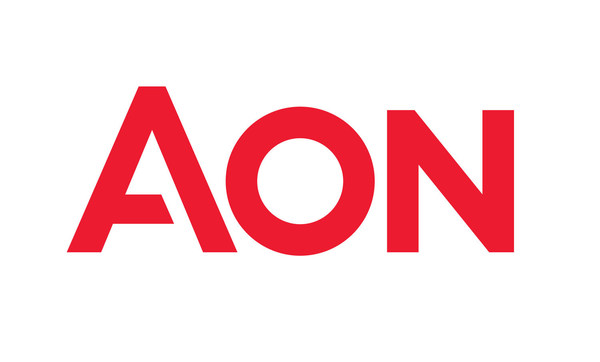 |
DUBLIN, Nov. 7, 2023 /PRNewswire/ -- Aon plc (NYSE: AON), a leading global professional services firm, today announced the results of its 2023 Global Risk Management Survey, which gathered input from almost 3,000 risk managers, C-suite leaders and other executives from 61 countries and territories to identify their most-pressing business challenges.
"The world is more volatile, reflecting a series of profound transitions across trade, technology, weather and workforce issues that have awoken business leaders to the increasingly interconnected nature of risk and people challenges," said Aon CEO Greg Case. "Through the use of advanced analytics and more integrated Risk Capital and Human Capital capabilities, we're helping clients quantify, manage and match capital to the risks they recognize today as we innovate on their behalf to serve their future needs."
Now in its 17th year, the 2023 edition of Aon's biennial survey found that human capital issues are no longer simply a "people problem," but a key business risk that is fueled by rising health care costs, the competition for talent, workforce shortages, and a lack of retirement preparedness. In 2023, "attracting and retaining top talent" ranked fourth globally, after not breaking the top 10 in 2021, demonstrating a shift in how risk managers are viewing human capital today. Still, only 11 percent of survey respondents indicated they have quantified their people risks, illustrating a significant gap between risk awareness and risk preparedness.
"We are at a pivotal moment in time, when business leaders are recognizing the true cost of human capital challenges and the reality that people risk intensifies all other top business risks," said Lambros Lambrou, CEO of Human Capital at Aon. "Shortfalls in talent, workforce or critical specialized skills can hamper innovation and competitiveness and increase exposure to cyberattacks, regulatory breaches, supply chain issues, business interruption and reputational damage."
Despite warnings and headlines, climate (#17) and artificial intelligence (AI) (#49) are notably missing from the global top 10 ranking, suggesting a lack of awareness about the potential impact of these issues on the corporate risk profile. More immediate climate driven risks include property damage, impact of severe weather, natural catastrophes, and the consequences for business of climate-related regulatory changes and compliance obligations.
"What is more confounding are the risks that are noticeably unaccounted for in leaders' assessments of the challenges they must address, notably climate risk," said Andy Marcell, CEO of Risk Capital and CEO of Reinsurance Solutions at Aon. "Climate is not an emerging risk, but an urgent one, with increasingly monumental implications for businesses of all sizes. What leaders need now are insights from advanced analytics and modeling alongside innovative parametric solutions that will help them make better decisions today and protect them in the future."
Additionally, AI represents one of the most pressing concerns amid technological advancement, as it will transform the enterprise risk landscape for all industries, introducing new risks for many companies and changing the severity and velocity of change of many existing risks. For instance, far-reaching AI programs could increase cybersecurity exposure, engender legal issues and amplify human capital risks such as scarcity of in-demand skills sets. Risk managers who understand the liabilities and insurance implications of AI across their digital value chain add value to their enterprise AI strategy.
As conflicts, geopolitical change, and macroeconomic conditions continue to have broad-reaching impacts, business leaders also ranked the risk of supply chain and distribution failure at its highest level in 14 years (#6). According to the latest survey, less than 40 percent of organizations have conducted supplier resiliency assessments and less than 20 percent have diversified their supplier base to mitigate supply chain or distribution failure risk. Insufficient mitigation efforts, therefore, appear to be correlated closely with a rise in perceptions of supply chain/distribution risk exposure.
Cyber attacks and data breaches remain the top risk in this year's survey, both globally and in North America, and they have also climbed to the top spot in Europe and Asia Pacific. Cyber shows the highest level of risk readiness, and consistent with that, it has one of the lowest reported losses of income and one of the highest percentages of risk mitigation actions across all top ten risks. Business interruption remains the number two risk since Aon's 2021 survey, reflecting the reality that business interruption events are increasing and can affect multiple industries and companies simultaneously.
Overall, the top ten global risks according to the 2023 Global Risk Management Survey are:
Notably only two of the top five current risks are insurable and half of the overall top ten is presently uninsurable.
Conducted every two years since 2007, Aon's Global Risk Management Survey provides data and insights to enable better decision making around risk in an increasingly volatile and complex business environment.
The full Global Risk Management Survey report is available here.
About Aon
Aon plc (NYSE: AON) exists to shape decisions for the better — to protect and enrich the lives of people around the world. Our colleagues provide our clients in over 120 countries and sovereignties with advice and solutions that give them the clarity and confidence to make better decisions to protect and grow their business.
Follow Aon on LinkedIn, Twitter, Facebook and Instagram. Stay up-to-date by visiting the Aon Newsroom and sign up for News Alerts here.
Media Contact
mediainquiries@aon.com
Toll-free (U.S., Canada and Puerto Rico): +1 833 751 8114
International: +1 312 381 3024